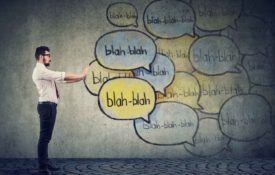-

Teaching: Big Smile—Distant Diversity Drives Emotion Culture
Why do people from some regions tend to be more extroverted and agreeable than those from other regions? Teaching about the ancestral diversity theory of culture and human emotion.
-

Teaching: Phenomenological Control—What Is Reality, Really?
Phenomenological control refers to the ability to construct subjective experiences that distort objective reality. Teaching tips and guidelines for this fascinating area of research.
-

Teaching: How Psychological Scientists Understand the Origin of Callous-Unemotional Traits
By using warmth rather than harshness, parents aid their children’s empathy—and lower their children’s risk for callous-unemotional traits.
-

Teaching: On the Benefits of Critical Ignoring
The proliferation of digital information has given people greater access to information. Yet there are few checks and balances to separate false and misleading information from the truth. Thus, people must become smart ignorers of information.
-

Teaching: The Unexpected Pleasure of Doing Good
Doing good feels surprisingly good. That’s the bottom line of two new Current Directions in Psychological Science research summaries.
-

Teaching: Shared Emotions / Positives of Psychological Disorders
Lesson plans about the emotions within and between us and the positives of autism, ASD, and other psychological disorders.

